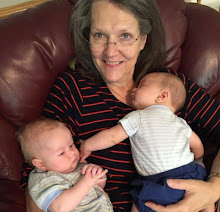
Hadley Founding Families
From Hartford:(Judd p. 11-12)
“At a meeting at Goodman Ward’s house, in Hartford, April 18th, 1659, the company there met engaged themselves under their own hands, or by their deputies, whom they had chosen, to remove themselves and their families out of the jurisdiction of Connecticut into the jurisdiction of Massachusetts, as may appear in a paper dated the day and year above said. Then names of the engagers are these:” (59 signed the document, *18 of them did not move or stayed just a short time).
John Webster
William Goodwin
John Crow
Nathaniel Ward
John White
John Barnaard
Andrew Bacon
William Lewis
William Westwood
Richard Goodman
John Arnold*
William Partrigg
Gregory Wilterton*
Thomas Standley
Richard Church
Ozias Goodwin*
Francis Barnard [second husband of Frances FOOTE]
James Ensign*
George Steele*
John Marsh [son in-law of John Webster]
Robert Webster* [son of John Webster]
William Lewis, Jr.*
Nathaniel Standley
Samuel Church
William Markum
Samuel Moody [son of John MOODY]
Zechariah Field
Widow Westly*
Widow Watson* [possibly Margaret Smith wife of John Watson]
Andrew Warner [second husband of Hester Wakeman Selden]
Richard Billings
Benj. Harbert*
Edward Benton*
John Catling*
Mr. Samuel Hooker*
Capt. John Cullick*
(not fully engaged)
Daniel Warner
From Wethersfield:
Mr. John Russell Junior
Nathaniel Dickinson
Samuel Smith
Thomas Coleman
John Russell, senior
John Dickinson [son of Nathaniel Dickinson]
Philip Smith [son of Samuel Smith]
John Coleman
Thomas Wells
James Northam
Samuel Gardner
Thomas Edwards*
John Hubbard
Thomas Dickinson
Robert Boltwood
Samuel Smith, Jr.* [son of Samuel Smith]
William Gull
Luke Hitchcock*
Richard Montague
John Latimer*
From Windsor:
Samuel Porter
Peter Tilton
John Hawkes
As early as 1614, the residents of the Valley began to encounter the first representatives of European nations exploring North America. In time, English colonists driven in part by a search for religious freedom began to settle the Connecticut Valley. A dissenting Connecticut congregation under the leadership of Rev. John Russell in 1659 founded Hadley as an agricultural community on the east bank of the Connecticut River. John Pynchon purchased the site of the new settlement, a fertile peninsular plain defined by a bend in the Connecticut River, from the Nolwotogg community on behalf of those settlers. The first settlers laid out this area, formerly known as the Norwottuck Meadow, as the center of the new settlement before their arrival, with the Town Common, referred to as "the Broad Street," as the central feature. The common measured 20 rods wide and one mile long, with the Connecticut River defining both ends, and was reportedly based on the original plan of Wethersfield, Connecticut. Eight-acre home lots were ranged along both sides of the common, with farmlands behind.
In 1675-76, during King Philip's War, to guard against Indian attacks, a palisade that ran far enough behind the houses to include most of the barns and farm buildings enclosed the street and common. Legend has it that, during that conflict, the town was saved from destruction when, at a critical moment, William Goffe—one of judges who had helped execute the King of England, now hunted as a regicide—who showed up in the midst of the townspeople, warned them of the danger, and led the town in fending off the assault, disappearing shortly afterward. Goffe, later known as "The Angel of Hadley," became the subject of many legends. As one of the English judges who sentenced King Charles I to death, he had fled to hide in New England when the English monarchy was restored in 1660.


2 comments:
Samuel Moody, is my direct ancestor! 12 generations back! So interesting, and cool! I know this thanks to my grandmas awesome genealogy skills!
John Russell was the brother of my ninth great-grandfather, Phillip Russell. Phillip's wife, my ancestor, was killed in the attack on Hatfield in 1677. Their oldest son, also my ancestor, was spared because he was out with the men putting up a house.
Post a Comment